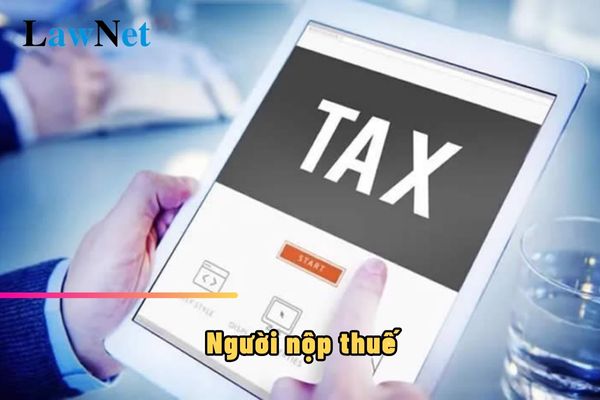Which entities are taxpayers in Vietnam?
Which entities are taxpayers in Vietnam?
Currently, there is no specific information regarding the concept of a taxpayer according to the provisions of the law. However, Clause 1 of Article 2 of the Law on Tax Administration 2019 stipulates on taxpayers as follows:
Subjects of application
1. Taxpayers include:
a) Organizations, households, business households, individuals paying taxes according to the provisions of tax law;
b) Organizations, households, business households, individuals paying other amounts due to the state budget;
c) Organizations, individuals deducting taxes.
2. Tax administration agencies include:
a) Taxation agencies including the General Department of Taxation, Department of Taxation, Sub-department of Taxation, Regional Sub-department of Taxation;
b) Customs offices including the General Department of Customs, Department of Customs, Post-clearance Inspection Department, Sub-department of Customs.
3. Tax administration officials include tax officials, customs officials.
4. Other state agencies, organizations, and individuals involved.
Thus, it can be understood that taxpayers are organizations, households, business households, individuals paying taxes according to tax law or paying other amounts due to the state budget or deducting taxes as prescribed.

Which entities are taxpayers in Vietnam? (Image from the internet)
What are responsibilities of taxpayers in Vietnam?
Based on Article 17 of the Law on Tax Administration 2019, taxpayers must have the following responsibilities:
- Perform taxpayer registration and use a tax code according to the provisions of law.
- Accurately, honestly, fully declare taxes and submit tax dossiers on time; bear legal responsibility for the accuracy, honesty, and completeness of the tax dossiers.
- Pay the full amount of taxes, late payment interest, fines on time to the correct location.
- Comply with accounting, statistical policies, and manage, use invoices, vouchers according to the provisions of law.
- Accurately, honestly, fully record activities arising from tax obligations, deduct taxes, and transactions that require tax information declaration.
- Issue and deliver invoices, vouchers to buyers for the correct quantity, type, and value during the sale of goods, provision of services as prescribed by law.
- Provide accurate, complete, promptly information, documents related to the determination of tax obligations, including information on investment value; account numbers and transaction content of accounts opened at commercial banks, other credit institutions; explain the tax calculation, declaration, and payment as requested by the tax authorities.
- Comply with decisions, notifications, and requests from tax management agencies and tax administration officials according to the provisions of the law.
- Bear responsibility for tax obligations according to the law in cases where the legal representative or authorized representative on behalf of the taxpayer performs incorrect tax procedures.
- Taxpayers conducting business activities in areas with information technology infrastructure must carry out declarations, tax payments, transactions with tax management agencies via electronic means as prescribed by law.
- Based on the actual situation and technology equipment conditions, the Government of Vietnam details regulations on taxpayers not required to submit documents in tax declaration, payment dossiers, tax refund dossiers, and other tax dossiers already held by state management agencies.
- Build, manage, operate technical infrastructure systems to ensure electronic transaction implementation with tax management agencies and apply information connection related to tax obligation implementation with tax management agencies.
- Taxpayers with related-party transactions are obliged to prepare, store, declare, provide information dossiers on taxpayers and related parties, including information on related parties residing in countries, territories outside of Vietnam as stipulated by the Government of Vietnam.
What are acts prohibited in tax in Vietnam?
Based on Article 6 of the Law on Tax Administration 2019, the prohibited acts in tax management are as follows:
[1]. Colluding, conspiring, covering up between taxpayers and tax management officials, tax management agencies to manipulate transfer pricing, evade taxes.
[2]. Causing troubles, harassment for taxpayers.
[3]. Taking advantage of tax loopholes to embezzle or misuse tax money.
[4]. Deliberately not declaring or improperly, incompletely, promptly, accurately declaring tax amounts payable.
[5]. Obstructing tax administration officials from performing their duties.
[6]. Using the tax code of other taxpayers to commit illegal acts or allowing others to use their tax code unlawfully.
[7]. Selling goods, providing services without issuing invoices as prescribed by law, using illegal invoices, and using invoices unlawfully.
[8]. Misrepresenting, misusing, accessing unauthorized, destroying taxpayers' information systems.

